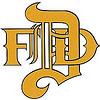D-HAN-Update Novel Coronavirus 01-21-2020
Please read the attachment on the Noval Coronavirus.
Situation
A novel coronavirus (2019-nCoV) has been identified. Symptoms include fever, cough, and shortness of breath. Initial cases were related to a fish and meat market in Wuhan City, China, which subsequently closed on 1/1/2020. Thus far, there are over 200 confirmed cases with several hundred more suspected cases. There have been few fatalities. While cases were initially only in Wuhan City, additional cases have been identified in Thailand, Japan, South Korea, Singapore, Nepal, and the United States (Washington state). There is evidence of person-to-person spread, although we do not know how efficiently this virus transfers through a population at the current time. Public health screening is occurring at five airports in the US with direct flights from Wuhan City (Los Angeles [LAX], San Francisco [SFO], New York [JFK], Chicago [ORD], and Atlanta [ATL]), and at other airports abroad.
Background
Coronaviruses were first identified in the mid-1960s. Both Severe Acute Respiratory Syndrome (SARS) and Middle East Respiratory Syndrome (MERS) are members of the coronavirus family. SARS was identified in 2002 and caused over 8000 cases and 774 deaths. There have been no SARS cases since 2004. MERS was identified in 2012 and has infected hundreds of individuals and caused dozens of deaths.
Assessment
It is likely that hundreds more cases of 2019-nCoV will be identified in the subsequent days. It is difficult to distinguish 2019-nCoV infection from influenza infection.
Recommendations
1) Patients presenting with fever, cough, or shortness of breath should be offered a surgical mask at the time of entry. This will help prevent exposure not only to 2019-nCoV infection but also to the more common influenza and other respiratory viruses.
2) ASK, ISOLATE, CALL.
ASK patients with fever or respiratory symptoms if they have traveled to China or had contact with someone who has been diagnosed with 2019-nCoV.
ISOLATE patients with have fever or respiratory symptoms AND either a history of travel to China OR exposure to someone with known 2019-nCoV infection in a private room with the door closed. Further information can be obtained from the patient once appropriate personal protective equipment is donned.
CALL Infection Prevention if you suspect someone has 2019-nCoV. The current recommendation is for healthcare workers to use Contact AND Airborne Precautions WITH eye protection (i.e., gown and gloves, N95 mask, and eye protection), although this may change with future information.
3) We anticipate that an electronic screening tool will be available shortly via Epic.
4) Expect for recommendations to evolve as we learn more information about this novel coronavirus infection.

Comments are closed.